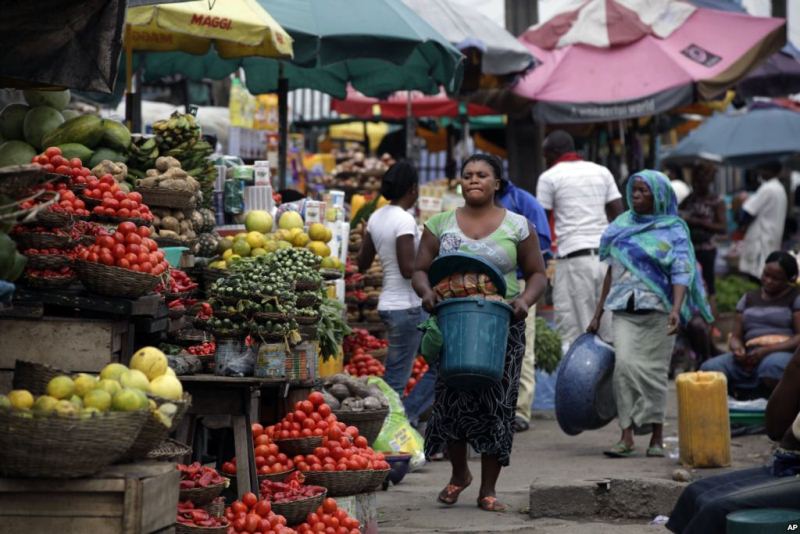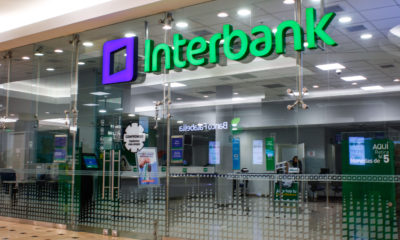Markets
Food Inflationary Pressure Eases
Published
7 years agoon

- Food Inflationary Pressure Eases
The National Bureau of statistics’ (NBS) inflation figures released last week revealed that the Consumer Price Index (CPI) was up 15.13 per cent year-on-year in January 2018, 0.24 per cent lower than the rate recorded inDecember 2017 of 15.37 per cent. As of January 2017, inflation figure was 18.7 per cent.
To analysts at Lagos-based CSL Securities Limited, inflation will decline over the course of 2018 but only relatively slowly.
According to them, their model suggests that price growth will fall to 12.9 per cent by the end of this year, down from 15.4 per cent in December 2017.
“Food prices, which make up just over half of the food price basket, had been increasing at above 20 per cent in year-on-year terms in the months leading to November 2017 but we have begun to see a moderation as we saw an 18.9 per cent year-on-year increase in January, down from 19.4 per cent in December 2017.
“We expect food prices will moderate further over the coming months as improved supplies come on to the market.
“However, we expect the disinflationary impact of this to be offset, to some extent, by a likely increase in utility prices,” they explained.
They argued that while the authorities maybe reluctant to implement a hike in the lead up to the February 2019 election, power supply would likely to remain intermittent until tariffs are increased to a sustainable level.
As such, households will continue to rely on expensive petrol- or diesel-powered generators, saying that incessant queues observed in the economy since the end of last year also suggest that consumers may be compelled to pay more for scarce petrol.
Interbank Naira Market
The Money market rates trended downwards throughout the week in line with system liquidity despite the open market operations (OMO) mop-up, wholesale foreign exchange (FX) secondary market intervention sales (SMIS) and the treasury bills primary market auctions by the central bank.
The Central Bank of Nigeria’s (CBN) activities in the past weeks, according to analysts at Afrinvest Securities Limited, further showed its commitment to stabilise the financial system, keep liquidity levels in check while also sustaining the recent gains in price and exchange rate stability.
To this end, the open buy back (OBB) and overnight (OVN) rates trended lower to 18 per cent and 20per cent last Monday, from the preceding week’s close of 43.3 per cent and 45.5 per cent respectively,despite lower system liquidity of N35.5 billion (from the precedingFriday’s level of N46.4 billion) and FX sales of $100 million at the SMIS window.
Also, on Tuesday, rates continued on a descent as OBB and OVN settled at 14.3 per cent and 15.3 per cent, following a no-sale OMO auction conducted by the CBN, on the back of improved system liquidity which opened the day at N35.1 billion.
The OBB and OVN continued theirsteady decline on Wednesday as they settled at 8.7 per cent and nine per cent as the total treasury bills issuance of N176 billion dwarfed the improved system liquidity which opened at N260.7 billion.
According to an Afrinvest report, by Thursday, the CBN mopped up N50.7billion from the system but the effect on system liquidity was negligible following the N90 billion OMO inflow on the same day which took system liquidity to N492.3 billion.
As a result, OBB and OVN fell further to 6.7 per cent and 6.9 per centrespectively.
On Friday, OBB and OVN closed the week at 6.7 per cent and 6.9 per cent respectively, indicating a 36.6percentage points and 38.6percentage points decrease week-on-week respectively.
In the Treasury Bills (T-bills) market, average rates across most instruments hovered round the same levels throughout the week despite the Primary Market Auction of N176 billion by the CBN.
“In the coming week, despite the level of system liquidity at N371.5billion as of Friday, we expect money market rates to trend slightly higher on the back of expected OMO mop-ups and the planned Wednesday DMO bond auction of N100 billion notwithstanding Thursday’s OMO maturity of N37.9 billion,” Afrinvest added.
Foreign Exchange Market
In line with trend, the CBN continued its weekly FX interventions, injecting US$100 million on Monday via wholesale SMIS intervention.
A total of US$55 million was auctioned at the small and mediumscale enterprises (SMEs) segment while US$55 million was sold to satisfy retail invisible demand (Tuition fee, medical payments and BTA).
Thus, FX rates traded within a tight band at all segments of the market with the CBN official spot rate trading flat all week after an initial five kobo depreciation on Monday (to N305.90/US$1.00).
Similarly, at the parallel market, rate opened at similar levels from the prior Friday (N363.00/US$1.00) and traded flat all week.
At the Investors’ & Exporters’ (I&E) window, the NAFEX rate shed 49 kobo in the first two trading sessions to close at N360.58/US$1 on Tuesday from N360.09/US$1 the previous Friday. The losses were fully recouped in Wednesday’s trading session as thenaira strengthened 54 kobo to settle at N360.03/US$1 but slightly pared gains on Thursday, shedding sevenkobo before settling at N360/US$1 on Friday, translating to a one koboweek-on-week depreciation.
Similarly, cumulative weekly turnover on the I & E window as ofFriday, was US$789.91 million.
At the FMDQ OTC futures market, the total value of open contracts of the Naira settled OTC futures closed the week at US$3.3 billion, US$10.5million higher than US$3.3 billion the prior week. The DEC-2018 instrument (contract price: N362.84) received the most buying interest in the week with additional subscription of US$10 million, which took total value to US$189.63. The NG-US APR-2018 (contract price: 360.92) however remained the most subscribed with a total value of US$657.9 million, while the NG-US JAN-2019 instrument (contract price: N362.27) was the least subscribed with total value of US$10 million.
Following a successful Eurobond issuance by the federal government last week in which US$2.5 billion was raised to refinance maturing short term local debt securities, “we expect further accretion to external reserves with positive feedback on the CBN’s ability to sustain FX intervention sales.
“Hence, despite downside risks of volatility in the oil market and political uncertainty, we retain our near term positive outlook on FX market stability and liquidity,” Afrinvest added.
Bond Market Review
Contrary to the sell-offs recorded in the local bond market the precedingweek, sentiment was bullish lastweek as yields trended 12 basis points lower week-on-week, to an average of 13.8 per cent across tenors at market close on Friday on the back of improved investor appetite following stability in global financial markets on one hand and the supply of new FGN Eurobond debt securities on the other hand.
The week started off on a quiet note with yields falling a marginal 1bp on average as momentum was sustained on Tuesday with average yield moderating 8 basis points to 13.8 per cent due to buying interests in MAR-2027 (-3bps) and APR-2037 (-8bps) benchmark bonds.
Sentiment further improved in subsequent trading sessions as yields fell three bps (basis points) on Wednesday, one bps on Thursday and staying flat on Friday against the backdrop of expectations of lower volume of primary market issuances.
Last Thursday, the federal government announced the pricing of its US$2.5 billion dual tranche Eurobond offering to complete the US$5.5 billion external debt programme approved by the National Assembly in 2017.
The pricing was largely successful as both instruments offered (12-year and 20-year series) garnered impressive buying interest from leading global institutional investors with a peak order book of over US$11.5 billion.
Both instruments have offerings of US$1.25 billion apiece, with the 12-year series priced at a yield of 7.1% while the 20-year series was issued at 7.7%. The proceeds from the Eurobond issuance would be used to refinance relatively expensive short term domestic borrowings as the FGN plans to achieve an optimal mix of domestic and foreign debt and reduce overall debt servicing cost. The impact of the debt refinancing, coupled with declining inflation rate and stability in FX rate, is anticipated to continue to anchor yield expectation lower in the near term and reduce crowding out of private sector borrowers.
Across the sub-Saharan Africa Eurobonds, performance remained bearish as yields trended higher week-on-week on all instruments under our coverage save the GHANA 2026 (-10bps) and KENYA 2019 (-10bps) bonds.
The extended bearish sentiment was on the back of ongoing global bond market rout as investors continue to price-in impact of reflation threat in advanced economies – and consequent normalisation of monetary policy – in the valuation of fixed income assets.
Is the CEO and Founder of Investors King Limited. He is a seasoned foreign exchange research analyst and a published author on Yahoo Finance, Business Insider, Nasdaq, Entrepreneur.com, Investorplace, and other prominent platforms. With over two decades of experience in global financial markets, Olukoya is well-recognized in the industry.

You may like
-
Inflation and FX Pressures Drive Sharp Increase in Prices Across Sectors
-
Inflation Slows to 23.2% in February, Raising Hopes for Price Stability
-
CBN Expected to Maintain Rates as New Inflation Data Shifts Policy Outlook
-
Nigeria’s Inflation Rate Adjusted to 24.48% Following CPI Rebasing
-
Comercio Partners Predicts Inflation Between 15-20% in Base Case Scenario
-
Nigeria’s Inflation Climbs to 34.80% in December, Highest in Recent Years















